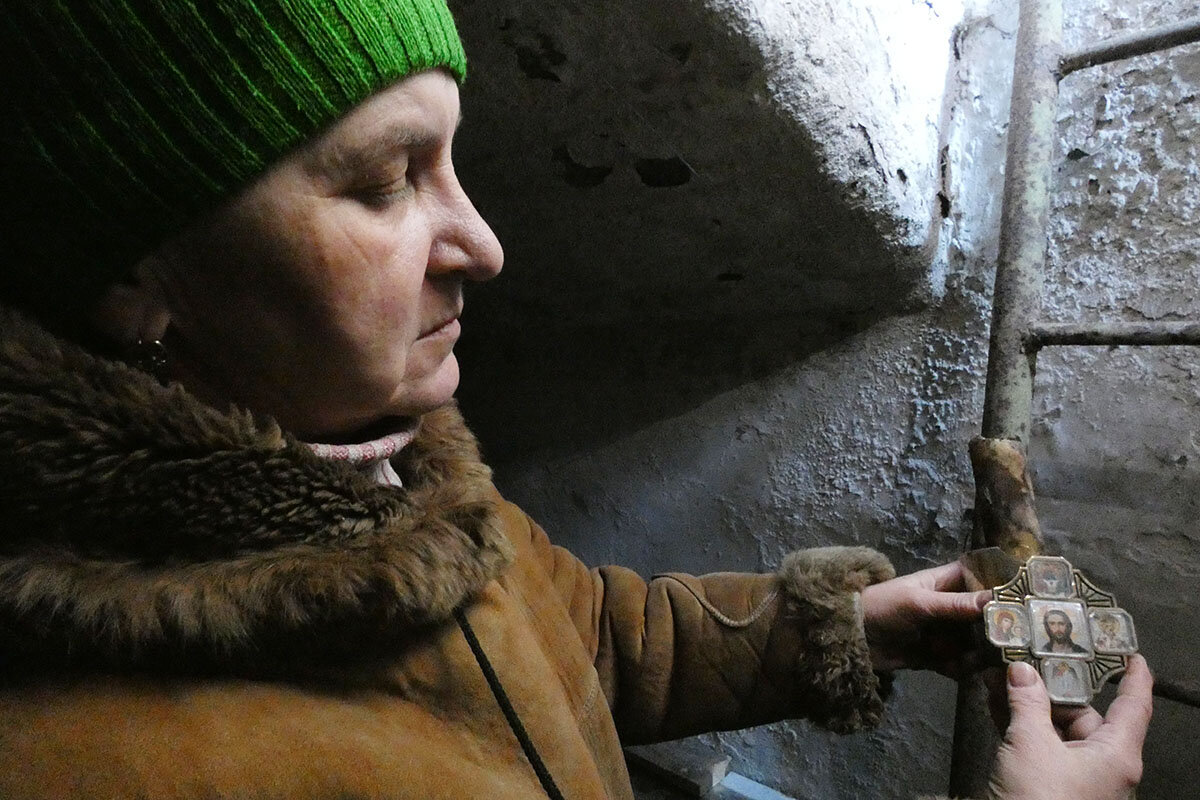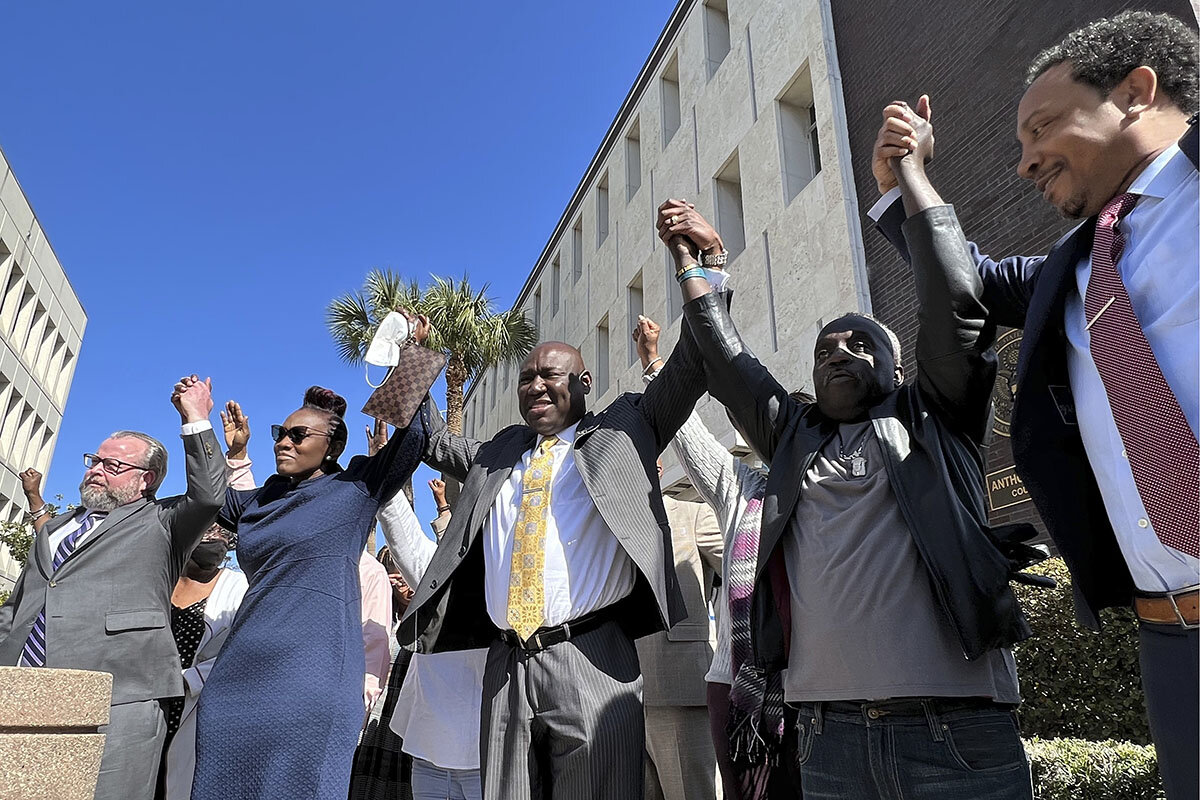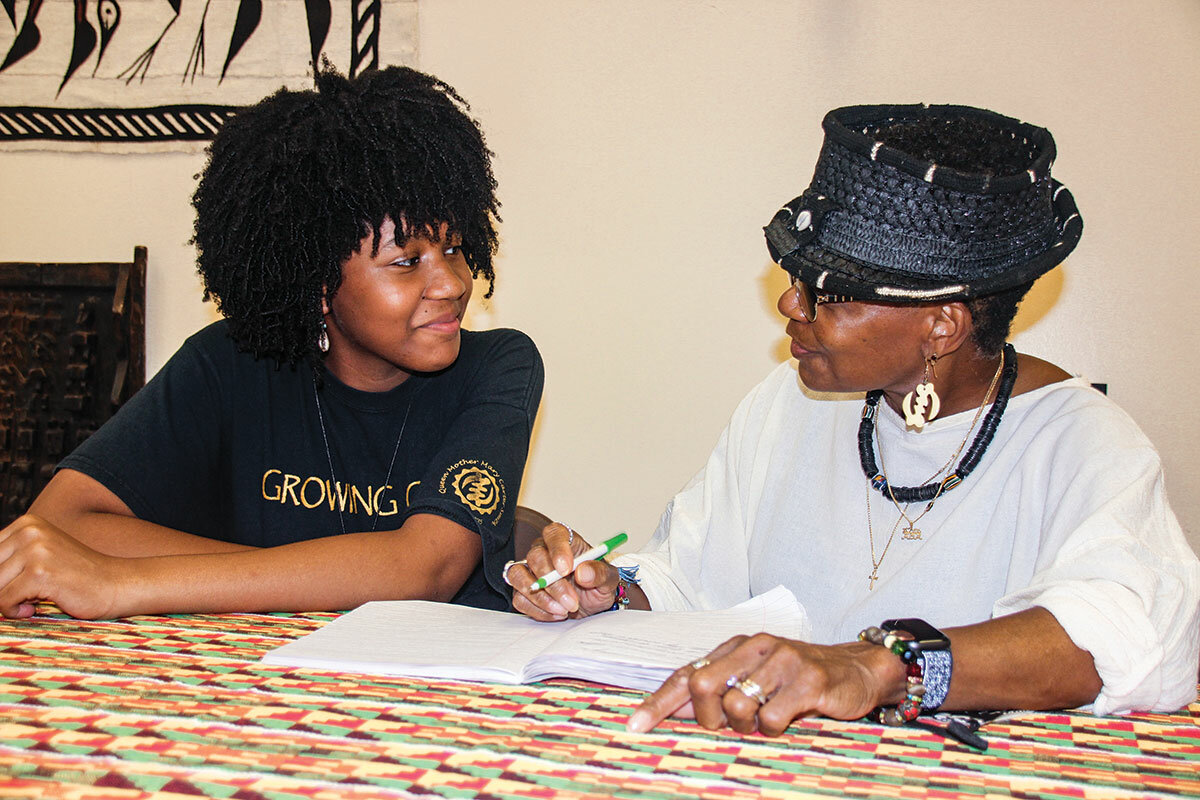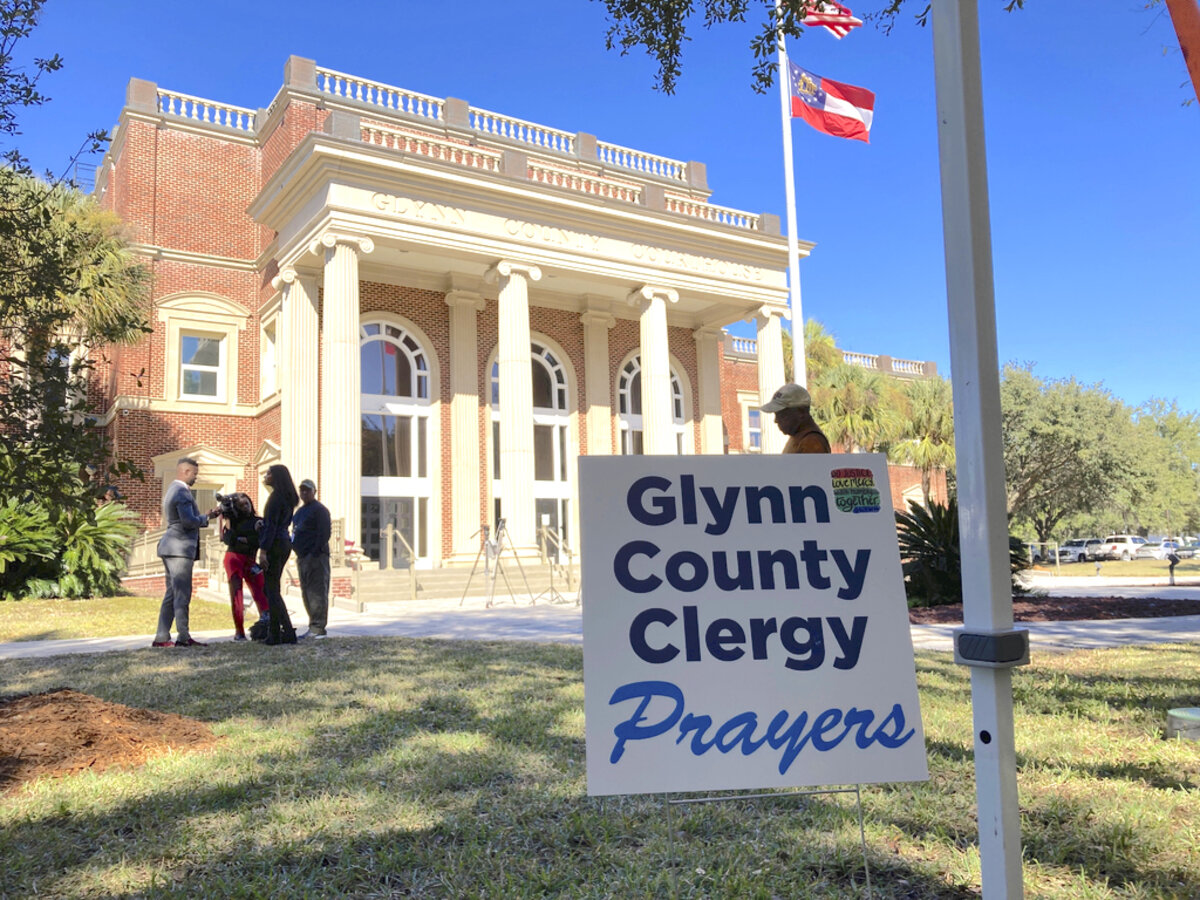Portraits of resilience. The fight over parts of Ukraine has left families divided, literally living and working on either side of the front lines. Our reporter provides the perspective of ordinary residents on the conflict with Russia.
Monitor Daily Podcast
- Follow us:
- Apple Podcasts
- Spotify
- RSS Feed
- Download
 David Clark Scott
David Clark Scott
Transparency can be a key element of credible journalism. So, it’s worth knowing that Monitor reporter Martin Kuz often sees the Ukraine conflict through the lens of his father.
Martin’s father was a child in Ukraine during the 1932 famine inflicted upon the country for its resistance to Russian leader Josef Stalin’s efforts to replace small, self-sufficient farms with big, communist collectives. At least 4 million Ukrainians died of starvation. Then, German and Soviet Union armies clashed on Ukrainian soil during World War II, devastating the country, and Martin’s dad became a refugee.
Martin, who covered the war in Afghanistan for three years, sees historical similarities: Both nations have been at the crossroads of outside forces pulling at them for centuries.
After fleeing Ukraine for Europe, then America, Martin’s dad became a small-town physician and raised a family in Minnesota. Martin grew up hearing the proud stories about Ukrainian generosity and kindness amid hardship. With Ukraine once again caught in the gears of war, “it’s deepened my appreciation for my father’s homeland and the man himself. Specifically, his ability to endure all that he did and yet continue to pursue his dreams and ambitions in the U.S.”
Martin’s reporting (including today’s story), he says, is a kind of “homage to my father. I know what his people withstood and how they’ve remained remarkably resilient. That was a lesson imprinted on me by him.” And what Martin’s witnessed so far in villages and towns along the frontlines of Donbass reinforces that lesson: “The strength of the collective spirit of Ukrainians, their ability to face up to more hardship, uncertainty, and possibly bloodshed.”










